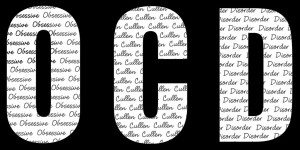
20 Mar Obsessive Compulsive Disorder and Other Compulsive Behaviours: Part 1
Dr. Peggy Richter is an internationally known researcher, author, professor, and the Director of the Clinic for OCD & Related Disorders at the Sunnybrook Health Sciences Centre. Dr. Richter’s research is focused on exploring the genetic and biological basis of Obsessive Compulsive Disorder (OCD). She is a frequent speaker in both the professional and public about her specialty. An innovator in her field, Dr. Richter works tirelessly to help those suffering with OCD and anxiety disorders have hope, through her research to better define the boundaries of OCD and related disorders.
Intrusive thoughts. Ritualistic behaviours. Repetition. An anxiety ridden individual. What do these 4 things have in common? Obsessive Compulsive Disorder (OCD).
OCD is an anxiety disorder that is characterized by the above mentioned. It can be a debilitating disorder, causing the affected to become so consumed with their “rituals” that they are no longer able to focus on anything else. It may be hand washing, counting, hair pulling, picking. OCD takes many forms and affects each person differently.
There are many different things that can cause OCD. A few of them include:
- Brain Chemistry
- Trauma (of any kind can trigger ritualistic behaviour in order to avoid dealing with the trauma)
- Misinterpretation of their intrusive thoughts (exaggeration of the need to perform rituals)
- Association of an object or situation with fear (learn to avoid that fear by self-soothing with ritualistic behaviour)
Whatever they cause (s) might be, OCD is an extremely difficult disorder for a bystander to understand. To the average person the behaviours may seem “silly”, “irrational”, and “unnecessary”. The person suffering with OCD is well aware that their rituals are irrational and unnecessary, but they are compelled to perform them anyways. This is extremely distressing for the individual, causing more anxiety.
OCD is often confused with Obsessive Compulsive Personality Disorder (OCPD). The clear distinction between the two is that those with OCPD do not feel that their actions are irrational. More often than not, they can readily express why their rituals and obsessions are nothing out of the ordinary.
So what are the available management/treatment options for those suffering with OCD? There are several different types of therapies that are available for those suffering. The treatment will depend on the person but common types include:
- Behavioral therapy: A general exposure to the objects/situations in which the person feels compelled to perform their rituals. Their therapist will help them work through their anxieties, eventually minimizing the behaviours associated with the objects/situations.
- Medication: Often times antidepressants and other medications are prescribed to help regulate brain chemistry and stabilize mood in the person suffering.
For anyone with a debilitating disorder like OCD, every day can be a continuous struggle. It is important to remember that management of symptoms is possible. It will take a lot of hard work and dedication, but it is possible. Asking for help is the first step towards a brighter future.


